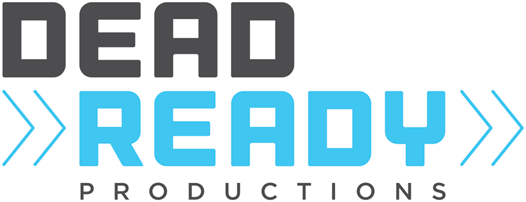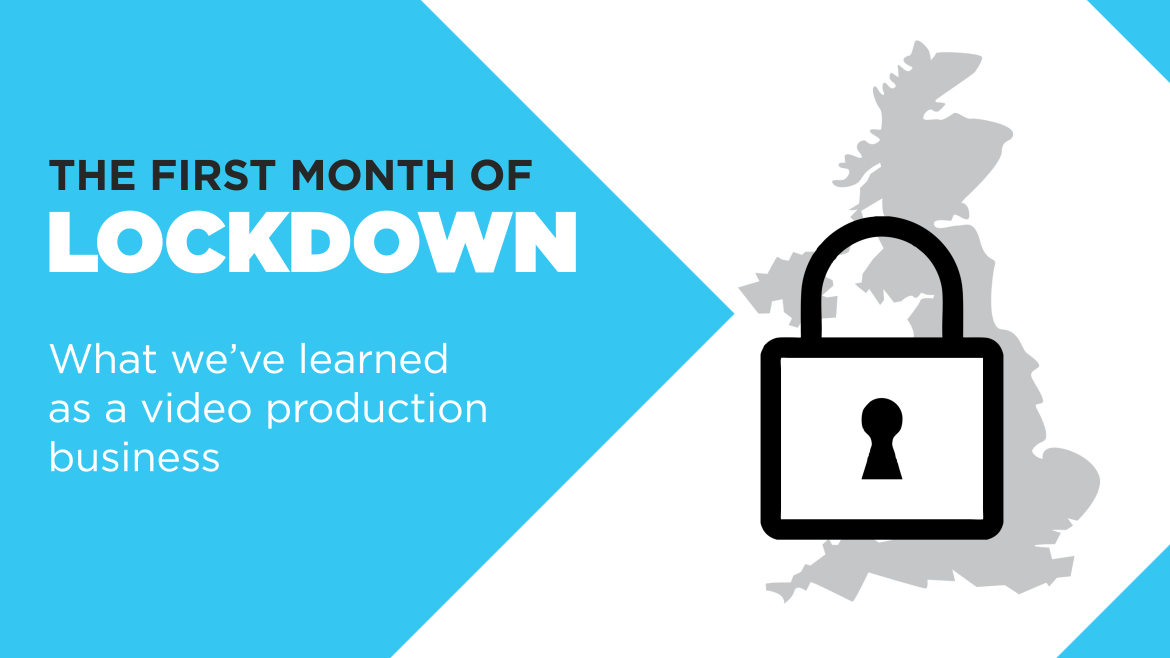Well that escalated quickly.
In late February, we were looking towards a spring and summer full of filming at international events. But on the 23rd March, the first UK Coronavirus pandemic lockdown began and everyone was confined to working from home.
Since then, like every other business, we’ve had to quickly adapt to the ‘new normal’ – and while a lot of uncertainty lies ahead, some things are already becoming clearer to us.
So as a video production company, what have we learnt over the last month?
1. Self-shooting is going to be important
It’s already evident that self-shooting is going to be a big feature of the coming months. Some of our upcoming projects have now changed approach with this in mind, with interviewees or presenters now filming their own footage and then supplying to us for postproduction, rather than relying on us to be their film crew.
It’s been interesting to see how television has adapted in this way. It’s been noticeable that many presenters and news journalists have already improved their self-filming technique massively over the last month! It was a highlight for me when an isolated Robert Peston managed to finally get his camera to focus on his face rather than his bookshelf.
The below Tesco advertisement is an example of something that in the past may have been shot with a film crew but instead uses self-shot content (or shot with the assistance of a family member) – and given the subject matter, the personal touch this provides is really effective:
2. The type of videos we’re making will change
It’s clear that things aren’t going to suddenly go back to how they were, and we can expect some form of social distancing in our lives for a long time yet. This obviously has implications for video production. But the bottom line is that content marketers are still going to need content, and the benefits that drive them towards video are still as relevant as ever. It’s just that the form that content will take, and the production process involved to create it, will change.
Animated Content
With fewer opportunities for live action filming, it’s likely that animated content will become increasingly important, in the form of explainer videos and animated infographics. 3D animation was already an area of increasing demand for us prior to the lockdown, a trend which may accelerate in the current climate as we see it used more in product videos, software tutorials and e-learning content.
Stock Footage
Videos based around previously shot footage, or drawing from stock libraries, may also become more prevalent. Fortunately, stock libraries these days are awash with high quality content, and tied in with the right voiceover script and music track can make for a truly compelling brand video.
Live Events
Live events may be off the menu for now but even with social distancing, filming with smaller crews will still be possible. Interviews and presenter-based content remain viable with the right preparation and planning, and will give clients access to the high production values needed when self-shooting won’t quite go far enough.
Drone Footage
Drone filming is another service that may become more prominent. Keeping away from people is generally a requirement of aerial filming anyway, and the locations we do this in tend to be more sparsely populated. So it’s well suited to the situation we’re in!
Aerial filming is something we love to work into projects but has always felt under-utilised, so we’d love to see more drone projects ‘get off the ground’.
3. Our role in the video production process will evolve
We’re already beginning to see how our clients needs are changing when it comes to video, and how we can better support them.
With self-shooting set to become so prominent, we’re providing more advice and guidance on how to do this to best effect – useful not only when creating publishable video content, but also for the vast amount of video calling we’re all now doing!
We’ve all been carrying very capable cameras in our pockets for many years now, and those who can learn to use them most effectively will really reap the benefits. And so we’ll be looking to support people with this as best we can – shifting from being the camera crew to offering remote guidance and direction.
A lot of live events are now moving to a virtual format, so we’re helping in ways such as supporting on podcast production for live debates that can no longer be filmed, and in helping to make webcast content as polished as possible. With everything being online for the foreseeable future, it’s all the more important that content is professionally packaged in order to stand out from the crowd.
Lastly, with clients keen to keep creating content but maybe unsure what’s possible or what approach best satisfies their objectives, it’s likely that our role as video consultants will become even more important. This means suggesting ideas on the type of videos you can make and how you can distribute them, and how to maximise the reach of your budget at a time when marketing spend may be particularly restricted.
4. Remote working is working for us
Because lots of our work requires instant access to huge 4k footage files, and we love the collaborative benefits of being face-to-face, we’ve always preferred to work together from our office. Until a month ago, working from home was generally reserved for specific tasks like scriptwriting and proposal creation.
However, it’s been really satisfying how quickly our team has adapted to a remote working setup. By setting up remote access to office-based computers, and providing everyone in the team with portable hard drives, we’ve become less reliant on being permanently connected to our main footage server. And by having regular team meetings over Skype and Microsoft Teams, we’ve realised how well we can still collaborate on projects, bounce ideas around, and enjoy each other’s company.
It’s been great how quickly we’ve overcome some of our perceived barriers to remote working, and it’s exciting to think how what we’ve learnt over this past month could provide us with more flexible working practices in the future.
5. The future is exciting
We’re under no doubt that challenges lie ahead, as they do for all businesses. But alongside those challenges lie opportunities that we’re excited about. We’re being forced to take a step back and re-examine the way we do everything, and make sure we’re best prepared for the future. We’re learning new skills that will benefit both us and our clients. And we’ve been reminded what a great team we have, and how ready we are to work through these challenging times together.
It’s still early days but as we move forward, video is going to be used in new and innovative ways. We’re looking forward to seeing what people and businesses do, and playing our own part in that. Not only will we find new ways to create the kind of video content we’ve always done, we’ll also see innovative approaches and new types of video content that may not have ever happened before the lockdown. And a lot of what we learn will have a lasting impact well beyond the point when things return to something resembling ‘normal’.
So with the first month of lockdown behind us, we may not have left our homes much but we’ve learned a lot! Please do share your own experiences with us – we’re all affected in different ways and it’s both fascinating and enlightening to hear how everyone is responding to the situation. In the meantime, stay safe!


